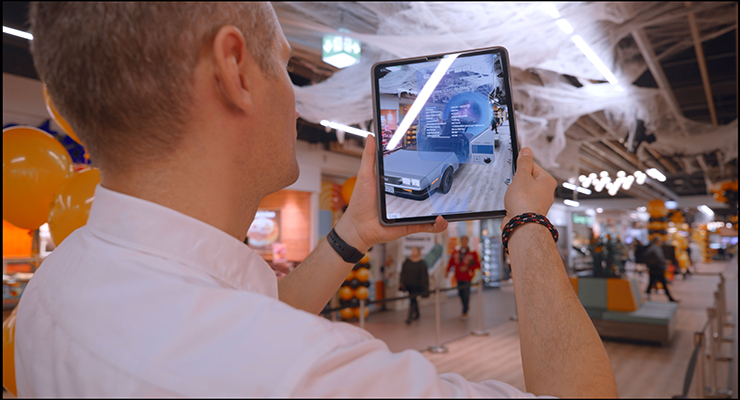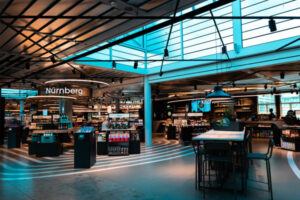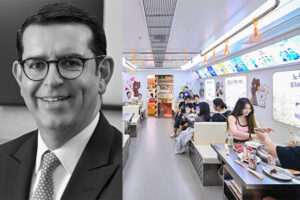As an example of how contextual digital content can be permanently placed and viewed in a specific location, virtual zombies, ghosts, and skeletons paraded through the center. Augmented reality navigation from the main entrance to Kaufland’s entrance was also presented, as well as a real-life fully electrified E-Lorean, known from the movie “Back to the Future,” as a digital twin.
Greenman OPEN believes in a technology-driven approach to retail development and is taking another step towards digitization with the launch of its event at Biesdorf Center. With the pilot project, the companies aim to demonstrate the potential applications of VR technology and show how the shopping experience can be enhanced for both visitors and retailers: By the usage of technology in the retail sector, for example, consumers can make better purchasing decisions by accessing information about the product, such as nutritional value or the supply chain, virtually via their own smartphone.
Johnnie Wilkinson, CEO of Greenman, said: “The topic of ecological transparency and sustainable production of consumer goods is increasingly becoming the focus of our fellow human beings. They are concerned with the way we use our resources, the people involved in the production, the transport routes and energy required for the end product. Meeting this environmentally conscious requirement means last but not least, a rethinking for many manufacturing companies and their customers.
From an availability-driven consumer behavior to a demand-driven production industry. So, how do we strike a balance between demand and sustainability? We believe that the use of key technologies has a decisive role to play here in answering this question. The fusion of the digital world with the physical world has the potential to provide us with the necessary tools to do this.”
Shora Shirzad, Co-founder of Mapstar AG, continues: “The Internet of the future exists in the three-dimensional space. The boundaries between virtuality and reality will merge, about that we are convinced. Our goal is to offer a metaverse infrastructure for everyone that is accessible by any device. Our field trial with Greenman has shown that this is not only possible, but almost as easy as child’s play for consumers. Imagine no longer having to spend a long time searching for a product in a store because you can simply ask a virtual assistant via your smartphone. If required, additional contextual information about the product, its origin or the supply chain can be retrieved by using smartphones and visualized in an augmented reality. And this is just the beginning because the possibilities of a virtually assisted reality are limitless.”
The VR event took place on Friday, October 28 at the Biesdorf Center in Berlin and attracted several hundred visitors who were able to try out and experience the technology. This reinforces Greenman’s view that virtual wayfinding, the presentation of information through augmented reality, as well as a fun customer experience, have a consistently positive impact.







